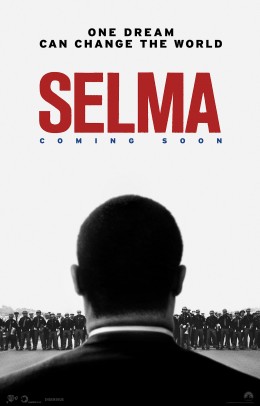Is historical fiction of ‘Selma’ true to history?
 History versus historical fiction. That’s the ultimate struggle in many Hollywood biopics about legendary figures, including the recent controversy over “Selma.”
History versus historical fiction. That’s the ultimate struggle in many Hollywood biopics about legendary figures, including the recent controversy over “Selma.”
“There is always a problem with historical fiction. In fact, many of us historians bristle at the term,” said Barbara Ransby, director of the Social Justice Initiative and professor of African American studies, gender and women’s studies and history.
“We work hard to figure out what happened in any given situation, so any fictional adaptation has to be viewed as such.”
The question of the film’s historical accuracy lies in its depiction of Martin Luther King Jr.’s three Selma-to-Montgomery marches in Alabama.
Some historians argue that “Selma” makes President Lyndon B. Johnson seem resistant to the Voting Rights Act because he wants to focus solely on the War on Poverty. The film also suggests that Johnson authorized FBI director J. Edgar Hoover to harass King.
“Whatever Johnson’s individual actions were, the point is that the FBI ruthlessly hounded not only King, but many other movement organizers,” Ransby said. “It’s interesting how some ‘controversies’ get foregrounded and others ignored.”
But is Johnson’s historical role the only problem with the film?
The lack of attention on King’s aides and volunteers is another point of contention for historians.
“My concerns about the film are not so much that Johnson was unfairly treated, but that I would have wanted to hear more of the grassroots voices that were, in many respects, the heart and soul of the movement in Selma and throughout the South,” Ransby said. “We see them in the film, but they were not just followers. They were serious thinkers, strategists and tacticians.”
Ransby’s approach to history is bottom-up rather than top-down, she said. So while King was a major force in the movement, Ransby said, the aides, volunteers and the female characters deserved larger roles.
“I don’t subscribe to a ‘great men’ approach to history,” she said. “We wrongly credit the high profile leaders as the primary change agents and ignore the more complex and sustained work that ordinary people have done to reform and even revolutionize our thinking and policies.”
Despite its controversy, “Selma” is worth seeing, Ransby said.
“The film was powerful, and even as a historian who knows what actually occurred, it moved me in ways a text could not,” she said. “I appreciate the filmmaker’s contribution to keeping the story of Selma alive.”
